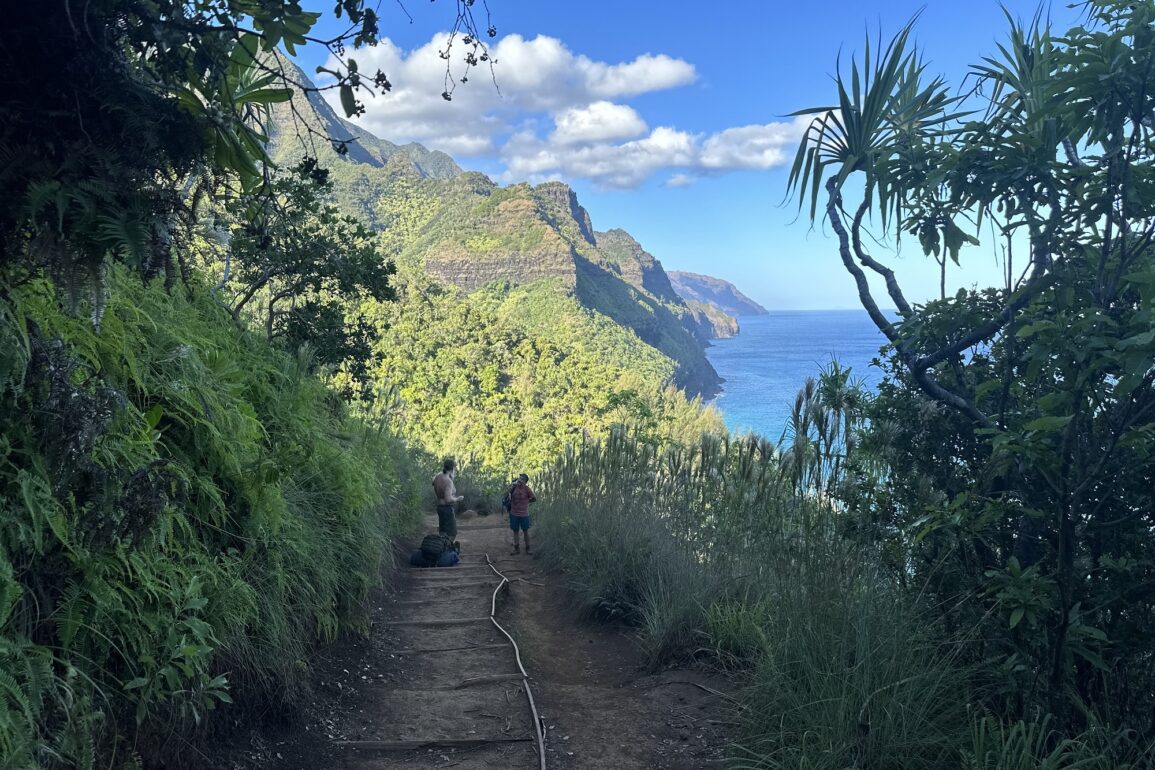September 30, 2024
The Kalalau Trail in Kauai’s Na Pali Coast State Wilderness Park will reopen on Tuesday, October 1st, 2024, following a temporary closure due to a norovirus outbreak among visitors. The Hawaii Department of Land and Natural Resources (DLNR), in collaboration with the Hawaii State Department of Health (DOH), announced the reopening after extensive cleaning efforts were undertaken throughout the park.
During the closure, DLNR’s Division of State Parks (DSP) conducted a thorough sanitation process in consultation with DOH. Crews were flown in to disinfect and clean the park’s composting comfort stations at Hanakapiai, Hanakoa, and Kalalau, where barrels of waste were removed for treatment and disposal. Maintenance teams also completed two rounds of upkeep at the Hanakapiai and Kalalau stations, and a six-person crew spent a day performing necessary repairs at Hanakoa. The work included vegetation removal and painting where needed to ensure facilities were ready for reopening.
Although full eradication of the virus cannot be guaranteed, significant preventive measures have been implemented. These efforts included repeated disinfection of facilities, and weeks of closure have allowed natural processes, such as rain and UV light, to diminish remaining traces of the virus.
The norovirus outbreak, which affected approximately 50 people, peaked around September 2nd. Since then, no new cases have been reported with onset after September 4th. DOH will continue to monitor for signs of infection and is asking visitors to report any symptoms of vomiting or diarrhea that occur during or within 72 hours of their visit.
“While the increased public health risk has subsided, we are urging park visitors to remain vigilant,” said a DOH representative. “Handwashing with soap and water is essential, and visitors should carry biodegradable soap with them. It’s also important to treat water before drinking it, and anyone feeling unwell should avoid entering the park.”
The source of the outbreak was likely a visitor who was already infected with norovirus and became acutely ill while in the park. The highly contagious virus spreads through person-to-person contact and contaminated surfaces, such as those at the park’s comfort stations. Norovirus, known for causing intense vomiting, stomach pain, and diarrhea, is particularly challenging due to the ease with which it spreads, with only a few virus particles needed to cause illness.
In addition to the extensive sanitation measures, testing conducted by the Centers for Disease Control and Prevention (CDC) found no traces of norovirus in the water, sand, or sediment of Kalalau Valley. However, CDC testing did reveal fecal contamination inside a cave located near the trail. As a result, the cave will remain closed through the winter when it typically becomes inaccessible. Officials reminded visitors that urination and defecation outside of designated toilet facilities are prohibited.
Despite the challenges posed by the outbreak, the reopening of the Kalalau Trail marks a welcome return for hikers eager to experience one of Kauai’s most beautiful and rugged landscapes. Those planning to visit the park are encouraged to follow health guidelines, including washing hands frequently and reporting any illness to DOH. It is important to note that access to the full Kalalau Trail, beyond Hanakapiai Beach, requires a permit in advance.



